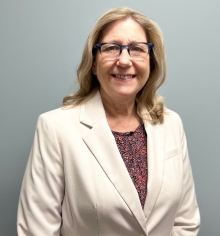So, you've been accepted into a dental hygiene program or dental school—congratulations! Taking the next step to further your education can be frightening, exciting and rewarding all at once. But what’s next?
As a clinical instructor at Concorde-Kansas City, I have been able to experience years of teaching, guiding and assisting the future bright minds of the dental profession—and I am here to share what I’ve learned with you. After seeing many students move from a bundle of nerves on day one to confident, driven graduates, there are some common strategies that the most career-ready students have used when walking their path toward success.
To ensure your program experience goes as smooth as possible and that you get out of it all that you can, here are five tips to prepare for success in a dental hygiene program.
Tip #1: Develop Organization Skills
Transitioning into advanced education, especially a demanding program like dental hygiene, isn’t easy. Whether you are a recent graduate or are making a career change later in life, strong organizational skills are crucial for success. Having a planner to build out a schedule allows you to not only block out time for studying, homework and clinicals—but a social life, too.
While education is the backbone of a successful career, being all work and no play can be tough. Being sure to develop the time management mindset that helps you maintain a healthy balance is key. Be sure to build in time to socialize with those who support you.
Tip #2: Prepare Your Loved Ones
Similar to scheduling time with loved ones, be sure to prepare them for the demands of your program. Your spouse, children, parents or roommates may not understand the dedication and life changes that come with your new path. It is important to let your support system know what the next steps are, what you need from them and that you will have to balance your time differently now that you’re adding a significant new opportunity to your weekly routine.
You also need to prepare yourself. Adjustments to family time, work time and fun time will have to be made to prioritize your education. It can be a hard decision, but the sacrifice you are making now will lead to the benefits of exciting new career opportunities and even a better and more fulfilling life for you and your loved ones.
Tip #3: Build Peer Relationships
While courses are taught by faculty, not all lessons will come from your teachers. Your peers are going through the same program as you, and you’ll discover they are often the best supporters of your journey. Whether it’s finding a group to study with or just meeting a new friend with similar aspirations, classmates can make your experience that much better.
Don’t be shy, you will all be in the same boat. If you can take a leap of faith to start your program, you can reach out and form a bond with a peer who can relate to you and those bonds can last long after graduation.
Tip #4: Use Provided Resources
When your classes or clinicals begin, don’t be afraid to use the resources provided to you. Whether it’s a fear of appearing behind or simply not putting in enough effort, I often see students not use all the resources we provide. This can be so damaging to their success. If you are struggling to complete online assignments, have unreliable internet access or even just need an extra tutoring lesson, many colleges provide free resources for students.
At Concorde-Kansas City, our campus has a Learning Resource Center, computer labs and software programs designed to help with coursework—all easily accessible for our students to thrive.
Tip #5: Keep it Positive
Educational programs are designed to provide a realistic expectation of future day-to-day requirements and patient needs—so naturally, it will feel mentally and physically challenging. Between demanding courses and real-life patient responsibilities, students can struggle to remember their original goals or even see the light at the end of the tunnel.
Remember to absorb the knowledge and experiences while still having fun and staying positive. Even your toughest day is just one day of a longer journey, and you’ll look back at the moments with pride as long as you don’t let the momentary stresses overwhelm you.
Always remember that the faculty teaching your courses and guiding you through clinicals are there to see you succeed. Believe me, we want this for you as much as you want it for yourself. Don't be afraid to ask for help. At any point, if you feel as if you need some additional mentoring or help, reach out to them for assistance.
In my time as an educator, the experience hasn’t changed too much. Dental school and dental hygiene programs aren’t easy, but the benefits are worth it. If you go in organized, well-prepared, open to new connections, willing to ask for help and with a positive attitude, you’ll be able to accomplish anything thrown your way.
About Janet Franklin, RDH, M.P.A. :

Janet Franklin, RDH, M.P.A.
Dental Hygiene Clinical Instructor
Concorde Career College-Kansas City
Prof. Janet Franklin is a graduate of University of Missouri-Kansas City School of Dentistry with a Bachelor of Science in Dental Hygiene. In 2004, she earned a Master of Public Administration Degree with an emphasis in Healthcare Administration. She has worked in a specialty private periodontal practice for 20 years, performing non-surgical periodontal procedures and patient education. Throughout her career she has acquired valuable knowledge and experience that she shares with students. Prof. Franklin joined the Concorde team in February 2016.
